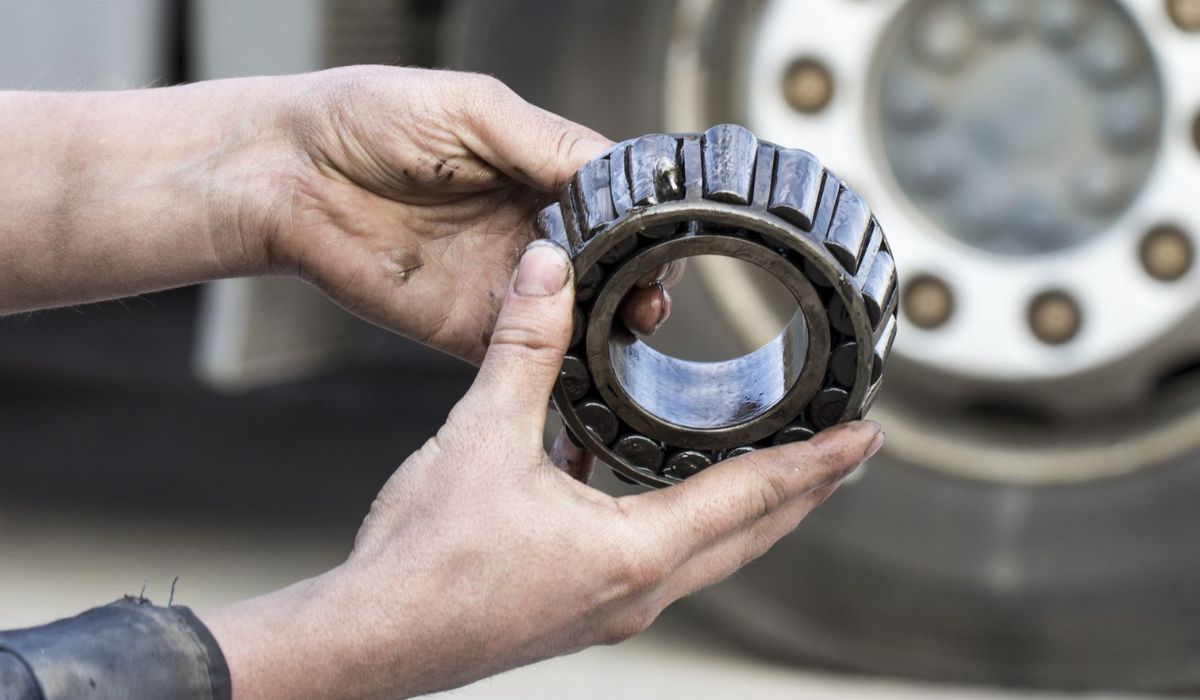The wheel bearing is a crucial part of every car since it bears the vehicle’s weight and allows the wheels to spin freely. Noise is a common symptom of a failing wheel bearing. Knowing the symptoms, causes, and potential solutions to wheel bearing noise is essential for vehicle upkeep and security.
What is a Wheel Bearing?
Steel balls or rollers are contained within a metal ring to form a wheel bearing. It slides into the wheel hub and reduces drag so the wheel may spin freely. Its major role is to bear the vehicle’s weight and allow the wheels to turn freely and easily.
Signs of Wheel Bearing Noise
There are a number of warning indicators that could suggest wheel bearing issues:
- Grinding or Growling Noise: One of the most typical signs is a grinding or growling sound, most often heard while the car is in motion. This noise generally increases with vehicle speed and may change pitch or loudness when turning.
- Humming or Whirring Sounds: Constant low-pitched buzzing or whirring sounds are generally an indicator of worn wheel bearings. There may be some driving manoeuvres, such turning, when the noise is accentuated.
- Clicking or Snapping Noise: There may be a clicking or snapping sound occasionally, especially while making quick bends. A worn or broken wheel bearing could be the cause of this.
- Vibration in Steering Wheel: A bad wheel bearing could be the culprit. It’s possible to feel these tremors when accelerating or travelling at a constant speed.
Causes of Wheel Bearing Noise
Wheel bearing noise can be caused by a few different things:
- Lack of Lubrication: Increased friction and wear on the wheel bearings can be the source of noise if they have not been properly lubricated.
- Contamination: Wheel bearings are susceptible to corrosion and damage from foreign contaminants such as water, dirt, and debris.
- Normal Wear and Tear: Reasonable Usage Wear and Tear Over time, normal usage wear and tear causes wheel bearings to become noisy and eventually fail.
- Improper Installation: Premature bearing failure and noise can be the result of sloppy assembly, such as overtightening or using the incorrect torque.
Solutions for Wheel Bearing Noise
For optimal vehicle safety and performance, wheel bearing concerns must be fixed as soon as possible. Here are some possible answers:
- Replacement: When wheel bearings get worn or damaged, replacement is usually the best option. To guarantee correct installation, have a skilled mechanic replace the bearing.
- Lubrication: Greasing or re-lubricating the wheel bearings as part of a maintenance schedule can increase the bearings’ durability, quiet the vehicle, and extend its life.
- Preventive Measures: Protecting wheel bearings from the elements and debris like dirt and water can delay wear and tear. Superior seals can prevent damage to the bearings.
- Professional Inspection: Regular checkups by a competent mechanic can assist discover early signs of wheel bearing deterioration, preventing additional damage.
Conclusion
A telltale sign of trouble in the wheel assembly of a vehicle is the presence of noise from the wheel bearings. Knowing the warning signs, figuring out what’s causing them, and fixing the issues before they get worse will keep the car running smoothly and safely. Improving vehicle performance and safety, wheel bearing noise can be greatly reduced with routine maintenance, inspections, and timely replacements.
Also Read: The Importance of Wheel Bearings: Keeping Your Wheels Rolling Smoothly.
Frequently Ask Questions (FAQs)
What causes wheel bearing noise?
Lack of lubrication, contamination from water or debris, regular wear and tear, incorrect installation, and improper assembly are only few of the potential causes of wheel bearing noise. When these conditions exist, friction, wear, and ultimately noise, all increase.
How can I identify wheel bearing noise?
Sounds like clicking or cracking when turning, as well as vibrations in the steering wheel, especially when travelling at different speeds, are common indicators of a wheel bearing problem.
Is it safe to drive with noisy wheel bearings?
The safety of the car is at risk if you continue driving while experiencing noisy wheel bearings. A loss of vehicle control can occur if noisy bearings eventually fail and cause wheel misalignment or detachment.
To reduce noise, may I grease the wheel bearings?
Lubricating wheel bearings can help reduce noise caused by insufficient lubrication. If the noise is the result of wear or damage, however, lubrication might not be enough to fix the problem and replacement would be required instead.
How often should wheel bearings be inspected?
It is advised that inspections be performed at regular service intervals. However, if you hear or see anything out of the ordinary, you should have a professional technician take a look at it right away to be sure no further damage has been done.











